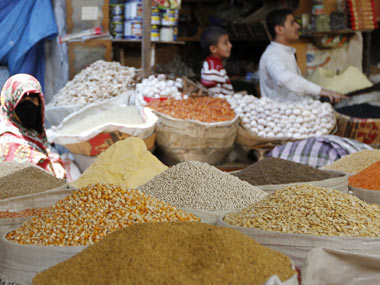The National Food Security Bill, one of the flagship schemes of UPA- 2, was tabled in the Lok Sabha on Thursday. Right from the beginning the government has been under attack for not giving a free hand to the National Advisory Council (NAC), which was drafting the document.
A vocal critique of the Bill, development economist Jean Dreze resigned from the NAC working group that was formulating the food legislation.However while many experts have argued that the Food Bill will bankrupt the nation, Dreze in a thought provoking editorial claims that fears about the bill’s cost are ‘alarmist’. Dreze argues that even if the food bill does end up costing more than the planned $5 billion, the economy won’t be hit all at once. A lot of the cost could come when India’s economy is booming again, and not this year when it is in the doldrums.
_“What is at stake, therefore, is not an immediate financial blow, but the ability of the Indian economy and public finances to accommodate this Bill over a period of time, in the light of economic trends. These trends include rapid economic growth, even faster growth of public revenue, sustained increases in foodgrain procurement, and, more recently, major improvements in the PDS in many states. This is a favourable environment for a food security initiative,"_he said.
[caption id=“attachment_163982” align=“alignleft” width=“380” caption=“Reuters”]
 [/caption]
[/caption]
In an interview with Firstpost Dreze talks about the lacunas in the present Bill and how the government could have given a better deal to the poor.
What is the biggest loophole or flaw in the current Bill?
In my view, the biggest problem is the reliance on an artificial division of the population into three groups (priority, general and excluded) without any clarity as to how these groups are to be identified.
Will this legislation make a difference?
No. The bill is just one step among many others that are required to end hunger and malnutrition. But it can make a difference.
You are not happy with the central government retaining most of the powers. Will you tell us how is it a better prospect to give more powers to the states?
I think that the Bill gives excessive powers to the central government to specify the time frame, the sharing of costs with state governments, the details of people’s entitlements, and the identification criteria. State governments have particularly good reasons to resist the imposition of a rigid framework for the Public Distribution System on the central government’s own terms. They should insist on greater flexibility.
What are your views on the provision in the Bill, dividing the population into three groups- priority, general and excluded?
This division is impractical, unnecessary and counterproductive. If the government insists on excluding 25 percent in rural areas and 50 percent in urban areas, then everyone else should have the same entitlements. This would be much simpler and more effective. The poorest households can continue to get special support under the Antyodaya programme. At the very least, state governments should be allowed and enabled to opt for this simpler framework.
There is a provision of replacing food entitlements with cash transfers. You think this will be abused?
As things stand, the central government can impose a replacement of food entitlements with cash transfers at any time, on its own terms. In fact, there are three separate provisions for this. They could be misused - some safeguards are required.
How about strengthening the current PDS system instead of introducing a new legislation?
The PDS must certainly be strengthened and many state have already made good progress in that regard. The Bill can help to consolidate that trend, if it is well designed.
You can also download our e-book on the Food Bill here .
)